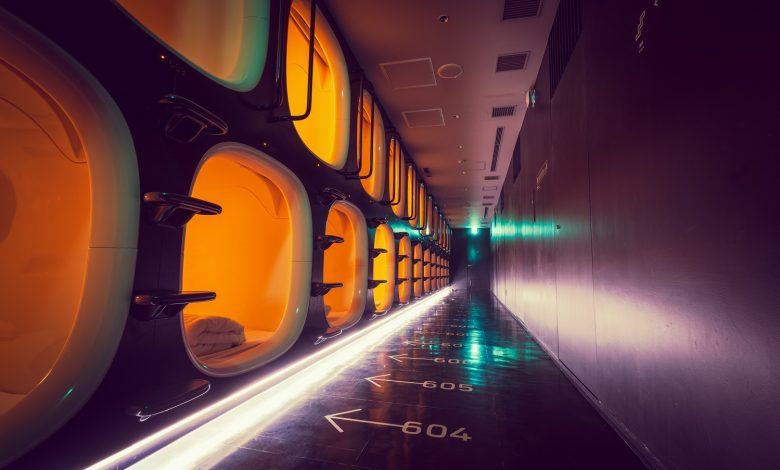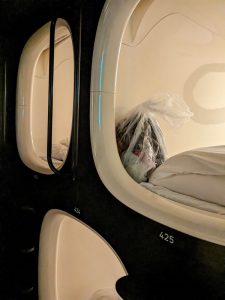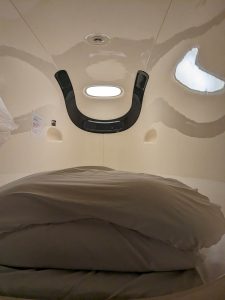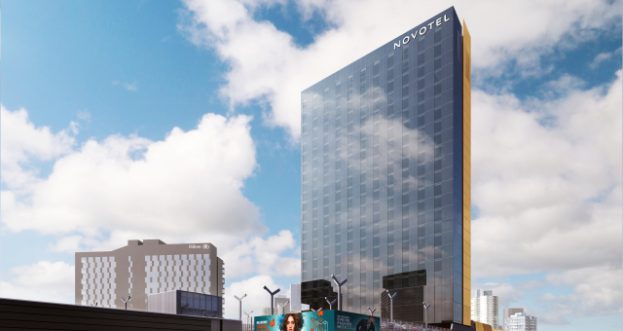
Op-Ed: Intriguing lessons from Tokyo’s capsule hotels
For Australian Accom operators, the Japanese concept of capsule hotels serves as a reminder to make the most of the space you have available
The concept of the Japanese capsule hotel may appear peculiar to the global audience. For those unfamiliar, Japanese hoteliers have ingeniously optimized space utilization by replacing traditional hotel rooms with stacked sleeping pods, each designed for a single occupant.
During my recent several-week stay in Japan, I had the opportunity to experience three different capsule hotels, each offering remarkably distinct experiences. I quickly realised that this presented a unique opportunity to extract valuable insights from the Japanese approach that could benefit the accommodation industry in Australia.
Our latest AccomNews print issue is available now. Read it HERE
To provide some context, Tokyo’s towering buildings are typically home to diverse businesses. Within a single structure, you may find a jazz club on one floor, an arcade on another, as well as cafes and onsen bathhouses, among countless others.
For Tokyo’s business owners, horizontal space is an incredibly scarce resource, necessitating the transition to vertical utilization.
Consequently, the hotel industry is predominantly dominated by large chains that possess the capital to invest in entire buildings. With their market dominance, hotel prices have skyrocketed.
However, Tokyo’s unparalleled entrepreneurial spirit swiftly addressed the demand for budget-friendly lodging options, leading to the birth of the capsule hotel concept.
So, how exactly do these capsule hotels operate?
Typically occupying only a few floors of a high-rise building, one floor is designated for luggage lockers and capsules, while another floor houses the bathrooms. Additionally, there is usually a communal floor that serves as the hotel’s reception area. The capsules are often segregated by gender, although some establishments offer mixed dormitory-style accommodations, impacting space utilization.
Such a setup easily accommodates around 50 individuals per floor, and certain capsule hotels can cater to up to 700 guests simultaneously. This is particularly impressive considering these hotels occupy only a few floors within a compact building.
Moreover, the pricing reflects this efficiency. In many capsule hotels, one can expect to pay between $20 and $50 AUD per night.
Even during Golden Week, Japan’s busiest period for domestic tourism, I never paid more than $60 per night for a capsule. This is even more cost-effective than staying at a hostel.
Interestingly, capsule hotels do not primarily cater to international or domestic tourists. And their setup makes it a virtual impossibility for couples and families who aren’t willing to be split up.
Upon arrival, guests are assigned a capsule and a locker. They are often provided with loungewear, a towel, and, adhering to Japanese customs, a pair of slippers to wear inside the hotel, where shoes are rarely permitted.
However, the lockers are too small for suitcases or large bags, and outside items are prohibited from the fully soundproofed, insulated, and remarkably quiet capsule rooms. Although the capsules do offer a charging plug for mobile phones, there is no internal storage space for small personal items. Therefore, it appears that capsule hotels are more tailored to overnight guests.
Among the guests I interacted with, the majority were Japanese salarymen—white-collar businessmen who work long, unconventional hours.
For them, capsule hotels provide a convenient alternative to enduring a lengthy commute home or serve as a last-minute option for those working late on projects.
Other guests included day-trippers, typically young Japanese students from regional areas seeking to spend a day at Disneyland while avoiding the notoriously high-priced nearby hotels.
Now, let us consider the comfort aspect. Having stayed in three different capsule hotels, I noticed significant variations in quality. While one should not expect lavish accommodations in a capsule hotel, most establishments maintain pristine facilities and have attentive cleaning staff.
However, individuals who are tall or prefer softer beds and pillows may find the capsules somewhat lacking in comfort. Nevertheless, the capsule rooms themselves are designed to be noiseless and sufficiently dark, ensuring a restful night’s sleep.

Capsule hotels strip down the hotel experience to its bare essentials. While many Western travelers may not be accustomed to parting with their luggage on a nightly basis, what more does one truly need beyond a bed, communal shower facilities, and a place to relax while enjoying snacks from vending machines?
By intelligently utilizing the saved space, hotels that provide capsule accommodations can drive significant business. An excellent example is the third capsule hotel I stayed at—a men’s-only establishment occupying two entire floors. This ingenious setup allowed the hotel to function as two distinct businesses: a hotel and an authentic Japanese onsen accessible to the public.
One entire floor was dedicated to hot springs, cold pools, and sit-down showers, while the other was exclusively devoted to serene saunas.
The onsen is independent of the capsule business but is made available to guests as a complimentary amenity, serving the dual purpose of the hotel’s communal shower facility. Any potential comfort limitations within the capsules were more than compensated for by the daily onsen experiences.
Similarly, another capsule hotel I visited had an entire floor dedicated to a state-of-the-art gym facility. This gym was open to the public, making it a suitable option for fitness-focused travelers.
For hoteliers, the capsule hotel model offers the advantage of maximizing revenue opportunities within a limited space. Unused floors can be repurposed to generate additional revenue streams, catering to both guests and non-guests.

So, what can we learn from capsule hotels? The popularity of these establishments appears to defy expectations regarding comfort levels. It may indicate the extent to which guests are willing to compromise on basic comfort for unbeatable prices and unique amenities.
However, it is worth noting that several elements of capsule hotels are influenced by uniquely Japanese circumstances. The scarcity of horizontal space, long working hours, and infrastructure that makes driving expensive and inefficient for daily commutes all contribute to the success of capsule hotels in Japan.
Furthermore, the adherence to Japanese customs, such as removing shoes indoors and a culture that discourages littering, ensures that stringent cleanliness standards are easily maintained, despite high volumes of guests.
Additionally, the low crime rates alleviate concerns about parting with valuable possessions on a daily basis.
In 2017, The Capsule Hotel opened in Sydney, Australia. Adding a space-age twist on the Japanese concept, this Sydney-based hotel includes a personal safe, mirror, and slightly more space – perhaps owing to more westernised comforts.
Beyond novelty – will there be room in the future for an entirely capsule-based hotel industry in Australia?
Perhaps. But as work becomes increasingly remote-based, family becomes the primary motivation for domestic travel, and other budget options become increasingly available, perhaps Australia simply doesn’t have a need for such creative uses of small spaces.
But for hoteliers in Australia – perhaps capsule hotels can serve as a reminder to make the most of the space you have available.
While the basics are important, it’s all the extras that impress. Empty space represents opportunity – and as we learned from Tokyo, these opportunities can become entirely unique standalone revenue opportunities for the savvy entrepreneur.







